Members & Config
Configuration
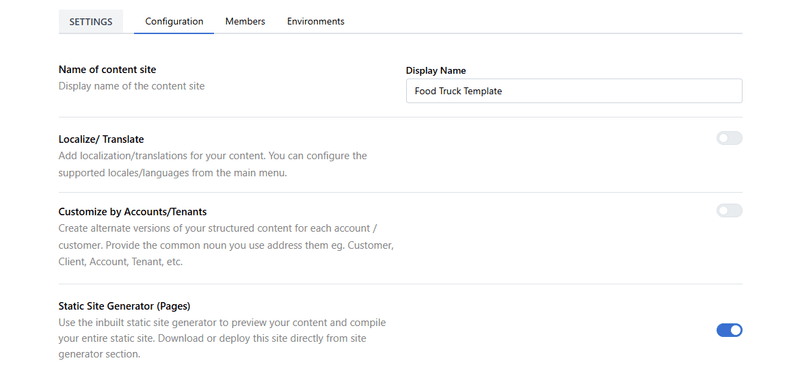
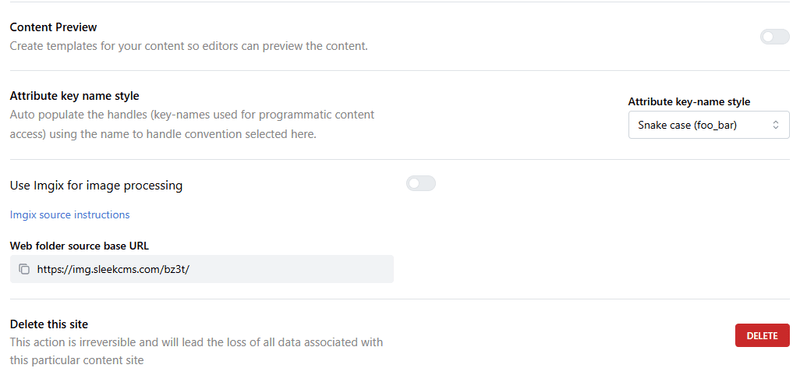
Configuration
Customize your content site’s behavior, branding, and integrations.
Display Name
-
Name of Content Site: A unique internal identifier (e.g., sleekcms-docs-prod) used in APIs and system references.
Display Name: The user-friendly name shown in the CMS dashboard (e.g., SleekCMS Docs). This helps teams quickly identify the site in multi-project setups.
Why Both?
The Name ensures consistency in APIs and automation scripts.
The Display Name improves readability for editors and collaborators.
Localize/Translate
Add multilingual support for global audiences.
- Supported Locales: Define languages (e.g., en-US, fr-FR) under Settings > Locales.
- Translation Workflow: By this user can create locale-specific content versions, assign translators with Editor or Admin roles to manage translations.
Customize by Accounts/Tenants
Tailor content for different customers or organizational units.
Terminology: Define how accounts are labeled (e.g., Customer, Client). This term appears in the UI and API responses.
How It Works: Create tenant-specific content versions, use the ?tenant=client-id parameter in APIs to fetch account-specific content.
Use Case: A SaaS platform displays unique pricing pages for each client by filtering content via tenant ID.
Static Site Generator (Pages)
Build and deploy static sites directly from SleekCMS.
Preview: Render content in real-time using templates (e.g., HTML, React).
Download/Deploy: Export static files (HTML/CSS/JS) or push to platforms like Netlify.
Content Preview
Visualize content during editing with customizable templates.
Template Types: HTML, React, Markdown, or plain text.
Placeholders: Use double brackets ({{ field }}) to map content fields (e.g., {{ title }}, {{ author }}).
Attribute Key Name Style
Define naming conventions for content keys used in APIs.
- Options: Snake Case: foo_bar (common in APIs). Camel Case: fooBar (JavaScript-friendly). Kebab Case: foo-bar (URL-friendly). Dot Case foo.bar (nested object keys, configurations)
Note: This setting applies globally. Changes affect existing and new content.
Use Imgix for Image Processing
Optimize images dynamically via Imgix CDN.
- Enable Imgix: Toggle on in Members & Config > Configuration.
- Imgix Source: Your Imgix subdomain (e.g., sleekcms.imgix.net).
- Web Folder Source Base URL: Root path for media (e.g., https://img.sleekcms.com/2zp/).
Example URL:
https://sleekcms.imgix.net/2zp/blog-header.jpg?auto=format&w=800
- auto=format optimizes format (WebP/AVIF) based on the browser.
- w=800 resizes the image to 800px wide.
Delete This Site
Permanently remove the site and all associated data.
Steps:
- Click Delete Site in Members & Config > Configuration.
Confirm options in the modal:
✔ Delete all pages/entries
✔ Delete all media
✔ Delete all versions
Critical Notes: This action cannot be undone. Ensure no active integrations (e.g., APIs, webhooks) rely on the site.
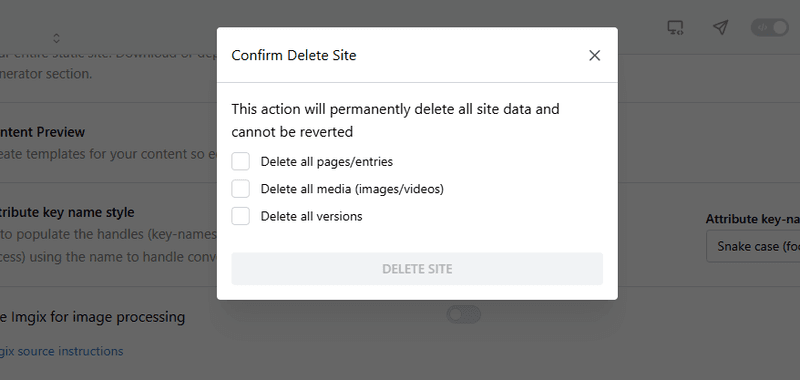
Members

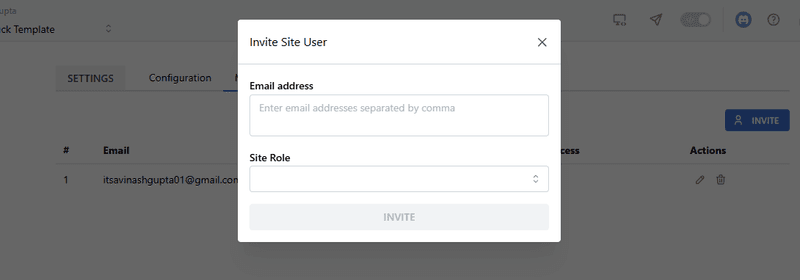
Members
Manage collaborators and their access levels.
| # | Role | Customized Access | Actions | |
|---|---|---|---|---|
| 1 | avinash@gmail.com | ADMIN | – | Remove/Edit |
| 2 | aradhya@gmail.com | EDITOR | Blog Posts | Remove/Edit |
Roles
- ADMIN: Full access (manage members, delete sites, configure settings).
- EDITOR: Create/edit content. Customize permissions (e.g., restrict to specific content types like Blogs or Products).
- VIEWER: Read-only access.
How to Add Members:
- Click Invite Member.
- Enter the email and select a role.
- (Optional) For Editors, restrict access to specific sections.
Security Tip:
- Review member access quarterly.
- Use Audit Logs to track changes made by collaborators.
Environments

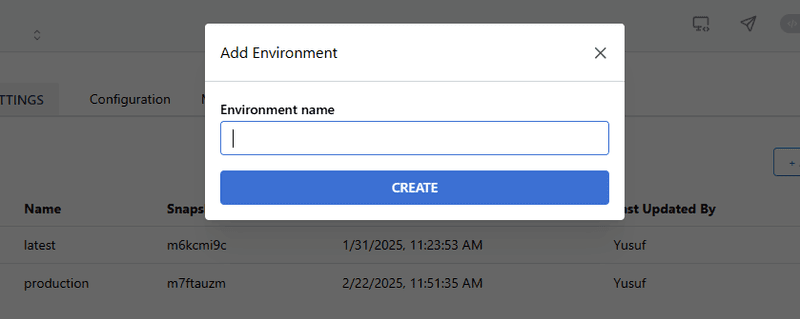
Environments
Associate content versions with tags for controlled deployments.
| # | Name | Snapshot Tag | Last Updated At | Last Updated By | Actions |
|---|---|---|---|---|---|
| 1 | latest | m6kcmi9c | 1/31/2025, 11:23 AM | Rahul | Edit/Delete |
| 2 | production | m7ftauzm | 2/22/2025, 11:51 AM | Rahul | Edit/Delete |
How It Works:
- Create an environment (e.g., staging, prod).
- Link it to a content version via its Snapshot Tag (e.g., v1.2.0).
- Fetch environment-specific content using the **env ** parameter in APIs:
curl -H "Authorization: PUB_TOKEN" https://pub.cms.com/v1/2dz6f?env=production